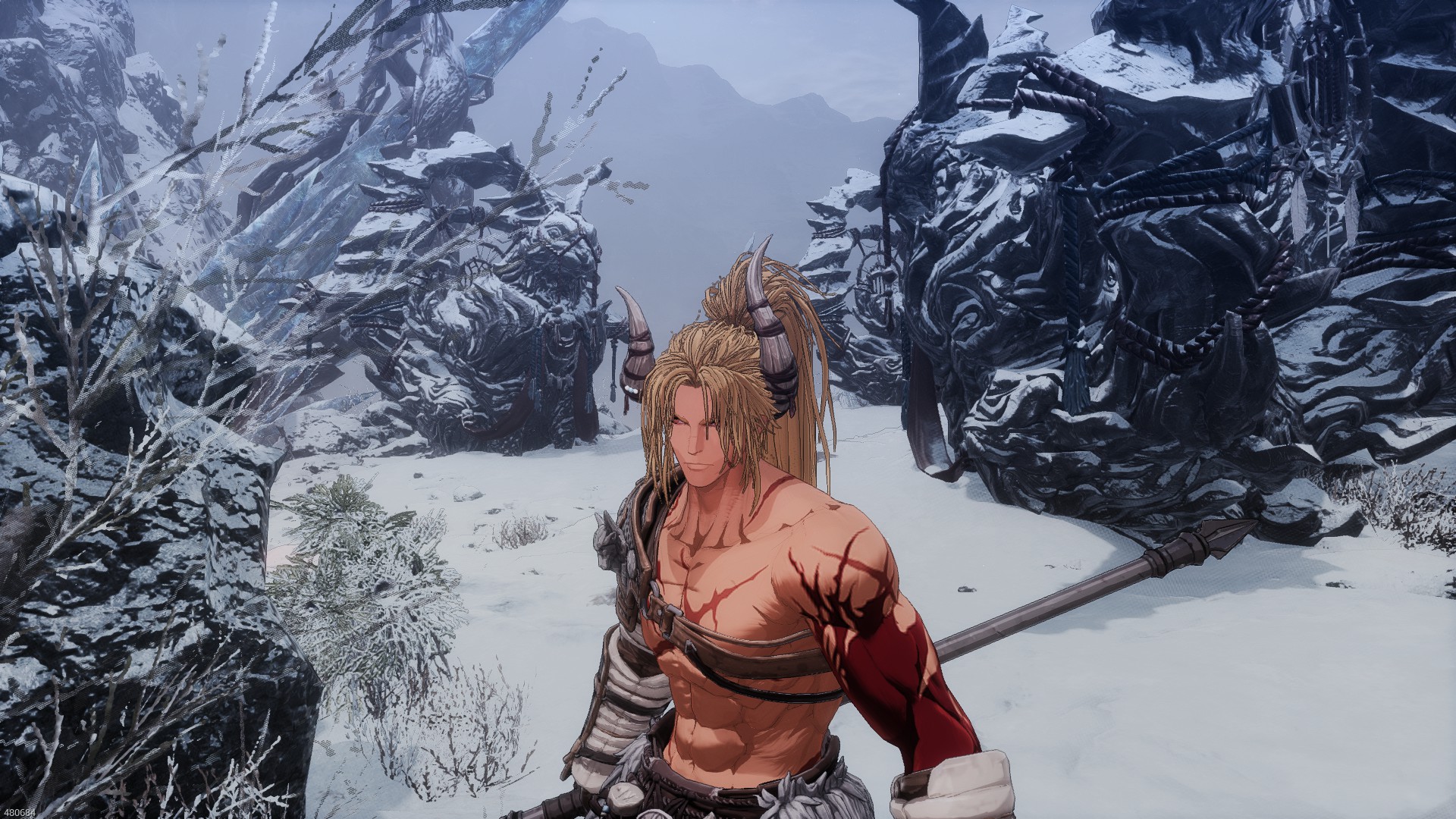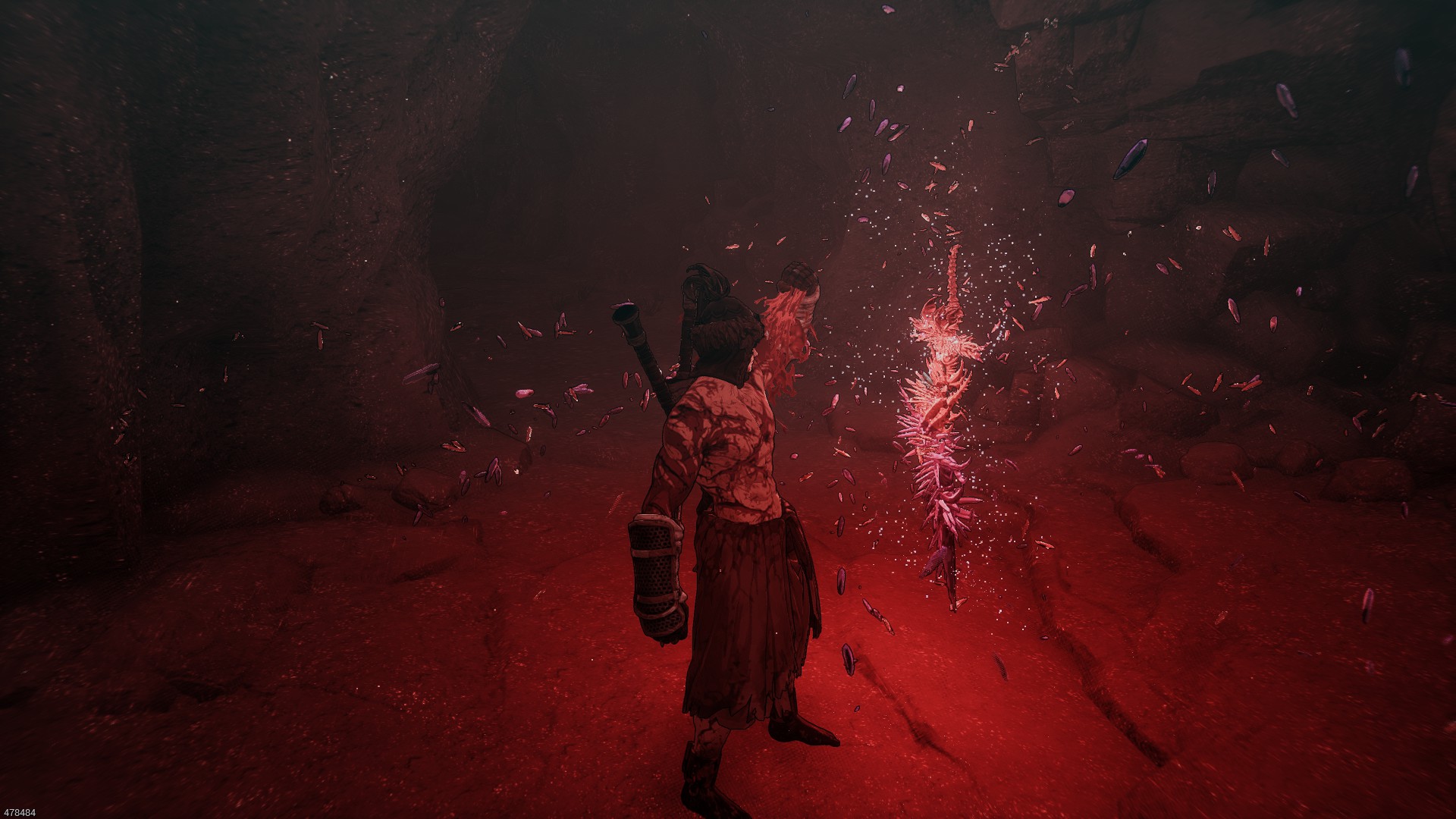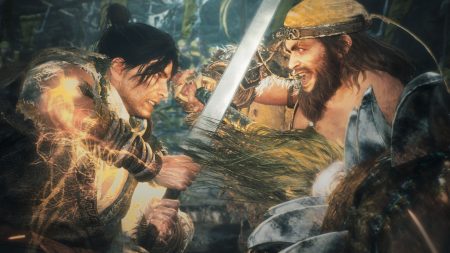Much Closer to Lies of P Than Enotria
The First Berserker: Khazan is the latest in a long line of Soulslikes that attempt to capture the critical and commercial success of the series of games FromSoftware made famous. As a gamer who’s been entrenched in the Souls ecosystem for a decade-plus now, I’m always on the lookout for new entries into the genre—some of my favorites even surpass FromSoft’s output—and The First Berserker: Khazan is a game I’ve had my eye on in that vein for a while now.
Developed by Korean development studio Neople Inc., a subsidiary of Nexon, Khazan’s first trailer drop at the 2023 Game Awards piqued my interest, and the bits and pieces of promotional material that have trickled out since have only increased my excitement. When a public demo was announced following a closed demo late last year, I knew I had to experience it for myself.
After several hours with the demo, I feel quite confident that Khazan is going to be a solid title. Of course, it’s the little details that push a game into the realm of greatness, but the fundamentals are in place for a potentially special experience here.
Sometimes, You Just Know
Notable Soulslike content creator Iron Pineapple has a nice heuristic he relies on for predicting a game’s promise in its opening minutes: “Can you destroy the crates?” It’s a strangely predictive metric for the overall quality of an action RPG, and it’s one I’ve adopted, this funny little question that bounces around in my head whenever I boot up a game for the first time.
I’m not entirely sure why this feels so reliable—I think it has something to do with game design that values high interactivity being a powerful tenet to abide by for non-deterministic gameplay, or maybe it just works because developers who have the leeway to focus on breakable boxes feel confident in the foundations of their game—but regardless, it’s something that has always stuck with me. Are the crates breakable? It’s one of the first things I test in almost any game that allows me to do so.
A destructible torch! It’s a good start.
“Gamefeel” is a very nebulous term—the “IFYKYK” of video game review terminology. But especially for action RPGs, I’ve found that it’s probably the most important thing, and one of the most centrally obvious. When the first demo for Lies of P came out, I could sense the potential there, even if the parry window and roll weren’t quite fine-tuned perfectly. It was just some of the subtle things—the speed of the block animation, the attack buffer, the degree to which the character would turn mid-animation when the lock-on target changed—all those subtle, nuanced things you never actively think about were present in that demo. And Khazan passes this test as well.
The way Khazan (the titular protagonist) transitions from running to dodging, the dash attacks, the lag between attacks, the openness of the buffer window that determines whether to continue your string of attacks or to start a new one—it all feels smooth, controlled, and, more than anything, intuitive. Those who are well-versed in FromSoftware’s output will find themselves right at home with the speed of Khazan. In keeping with modern trends, Khazan is more aligned with the Sekiro: Shadows Die Twice side of things, akin to games like the Star Wars Jedi series, Lies of P, Black Myth: Wukong, and Stellar Blade. The parry window feels a tad generous but is balanced by what feels like a wide variety of enemy attack patterns and tricky but fair move sets.
I compare this feeling of “if you know, you know” to an experience I had last year, while I was playing the demo for Enotria: The Last Song, another Soulslike that had a fair amount of marketing and hype behind it. Developed by Jyamma Games, Enotria is a Soulslike with a striking art design and aesthetic sensibility that proudly embraces the studio’s Italian heritage. It was a title I had high hopes for.
But just 10 minutes into the demo, those hopes were dashed. The clunky animations, movement, and gamefeel were simply off-putting, and two hours with the demo revealed even more pain points, such as an unacceptable lack of enemy variety (both in their copy-paste designs and their limited move sets). Khazan, on the other hand, vaults over these bars with aplomb.
More of a Sekiro–Nioh Hybrid than Souls
To move off the realm of vagaries and anecdotes and into more concrete territory, Khazan is actually far more influenced by two more recent Soulslike contemporaries: Sekiro: Shadows Die Twice and Team Ninja’s Nioh. To say any third-person game with a heavy focus on parrying attacks with a blade is influenced by Sekiro is certainly lazy, but it’s also generally apt. The flow of parrying attacks, sneaking in swipes and slashes when you can with a unique secondary parry for certain attacks (think the Mikiri counter) is quite reminiscent of the rhythms of Sekiro.
However, in most respects, the name that most comes to mind when playing Khazan is Nioh. Nioh represents an approach that melds posture and stamina into one bar (called Ki), and Khazan does this as well. Stamina management in Khazan doesn’t require as much precision as Ki management does in Nioh, and is significantly easier mechanically, without any timing button presses required. Where the Wolf in Sekiro is limited to his katana, Khazan has access to a multitude of weapons types, though only three are available in the demo: a dual-wielded axe and shortsword, a greatsword reminiscent of Berserk, and a glaive. Each weapon in the demo felt appropriately unique: The greatsword’s attacks were slow and bulky, but were actually able to interrupt enemy attacks, while the dual-wield move set unleashed a flurry of quick slashes but were prone to being interrupted or trading attacks. Meanwhile, the glaive separated normal and strong attacks into pokes and slashes respectively, offering an additional way to maneuver around the defenses of blocking enemies.
There’s also an expansive skill menu with trees for each weapon type, which introduces more additions to Khazan’s basic move set, from additional attack strings to damaging parries. All of these elements paint a picture of a game that leans far more into the Team Ninja-inspired style of heavy action elements as opposed to the more methodical approach of earlier Dark Souls entries. For my taste, that’s preferable, as Nioh 2 is my favorite Soulslike of all time, but it might be a bit off-putting to those who prefer less-involved fare. See the gameplay below from the legend ONGBAL to see how intense and involved the combat can get compared to my simple parry and slash strategies:
Finally, to really close the loop on Nioh comparisons, Khazan has a sizable loot element to it, with five categories of armor, a necklace slot, and a ring slot all available for buildcraft enjoyers to sink their teeth into. Weapons and armor have a level that scales with the player, which means new drops will quickly replace old ones, encouraging experimentation with weapon variety. Armor pieces have a static defense value, but also have group bonuses that scale with the number of pieces of the set that are in use (for example, the Hound Set has bonuses when two, three, four, or all five pieces of the set are equipped). Again, a notable departure from the streamlined style of Sekiro and the Soulsborne series in general, but those who like to fiddle with the numbers and line up bonuses will find much to sink their teeth into, I’m sure.

What Is Khazan Actually About?
Sometimes, I forget that there’s more to games than just mechanics. I’ll go over my superlatives quickly: Khazan’s presentation is good, if not especially memorable, with a Code Vein-esque cel-shading paired with an incredibly dramatic and edgy delivery that just barely manages to avoid embarrassing itself a la Strangers of Paradise. The short tidbit of narrative present in the demo promises a story of betrayal, revenge, and demons. I found myself quite impressed by how often Khazan was able to cover up every part of himself but his chest, and I hope that’s a trend that continues into the full product.
Also, apparently this game takes place in something called the Dungeon and Fighter universe, which was created by Nexon. Outside of Korea, Nexon is probably most famous for creating Maple Story, but overseas is likely more known for Dungeon Fighter Online, one of the most successful and highest-grossing media projects of all time, which was news to me and shows how siloed my media consumption is. In the lore of Dungeon Fighter Online (often abbreviated to DNF), Khazan is a legendary figure whose exploits predate the current setting of DNF by several centuries, so The First Berserker operates as a prequel story for that universe.
(If I had a nickel for every time Ben Starr voiced a well-muscled revenge-driven man who had his pecs exposed most of the time, I’d have two nickels. Which isn’t a lot, but it is weird that it’s happened twice.)
I’m not sure how much excitement there is globally to explore Khazan’s story from a DNF lore perspective, but regardless, there seems to be enough money and enthusiasm behind this project to hire some notable voice actors (Anthony Howell, who voiced Margit and Morgott in Elden Ring, also plays the key role of the devil on Khazan’s shoulder) and put some care into the presentation of this tale, so I have hopes that the story will be at least reasonably engaging.
High High Hopes for a Killing
I came away from this demo very impressed by The First Berserker: Khazan. The combat was smooth, aesthetic, and strikes the right balance of mechanical precision and ease of play that I think will appeal to many, even those who aren’t entrenched in the action game ecosystem. The graphics are above serviceable, and there’s clearly care put into the presentation and delivery of the story. I’ve already beat the demo twice, and I might put even more hours into it just so I can further explore the skill trees, of which I’ve barely scratched the surface.
If you’re an action game aficionado who’s itching for a Soulslike experience that leans more Nioh than Dark Souls, I highly recommend sinking your teeth into the demo to see if it’s your kind of game.
The First Berserker: Khazan releases March 23, 2025, for PlayStation 5, Xbox Series X/S, and PC via Steam.
Huge video game, comic book, and anime fan. Spends way too much time watching things he doesn’t like. Hates Zack Snyder. Mains Falco.









